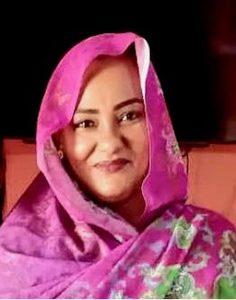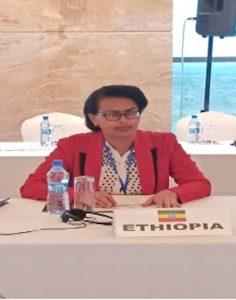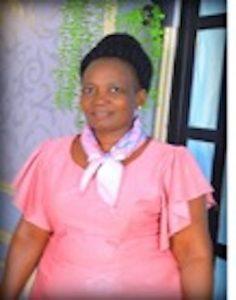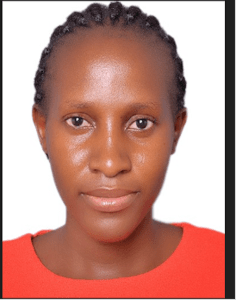This year, IGAD joins the rest of the world to commemorate the International Women’s Day (IWD) under the theme: #EmbraceEquity.
IWD is a global day celebrating the social, economic, cultural, and political achievements of women. The day also marks a call to action for accelerating women’s equality. IWD has been an annual event since the first gathering in 1911 supported by over a million people.
In the context of land rights, equity is a central tenet. Like elsewhere in the world, women in the IGAD region are not a homogenous group and therefore analysing women’s tenure security from an intersectionality perspective is very critical and allows Member States and all actors to design appropriate and tailored policies and programme interventions that meet the needs and aspirations of different marginalised groups. Due to socio-cultural constructs prevalent in parts of the IGAD region, if not all, women’s land rights remain precarious despite progressive land policies and legislations that validate the need for women to gain rights in land. Land inheritance and ownership continue to follow the bloodline based on the belief that, men as permanent members of the family will perpetuate the father’s dynasty while women are expected to marry and cease to be their father’s family. Women continue to bear brunt of discriminatory practices and norms that accord them a secondary position in society and denies them full access and control over land and other resources.
For example, a married woman may gain access to land, if she has her husband’s authorisation but is likely to lose this in the event of the breakdown in relations. Widows become custodians of their diseased husbands’ land for their minor sons but only on condition that they remain single and chaste, or get ‘inherited’ to one of the male members of the clan. A widow usually loses rights if she re-marries outside the husband’s clan or leaves his village on his death, in the case she only has daughters or is childless. A woman’s rights may also change if her husband remarries. Thus, in the event of marital separation, divorce and, sometimes, widowhood, women’s rights to land under the individualized tenure remain ill defined. Single unmarried women are perhaps the most stigmatized in society. They are still expected to marry and gain usufruct rights to land through their husbands. According to customary laws, women who are unable to marry should, in principle, be allocated land by their fathers. However, this occurs rarely as customary laws are re-interpreted, and women who are allocated land by their fathers are subject to intense stigma and victimization by their brothers.
Equity is the acknowledgment that certain advantages and barriers exist and that these barriers have prevented certain groups from involvement and advancement in many areas. Therefore, improving equity requires acknowledgment of the inequities people face and actively working to redress that imbalance.
The IGAD Regional Women’s Land Rights Agenda https://igad.int/wpcontent/uploads/2021/11/IGAD-Womens-Land-Rights-Agenda-2021-2031.pdf, and other global and continental Human Rights frameworks such as the International Bill of Rights, the United Nations Sustainable Development Goals (SDGs); Voluntary Guidelines on the Responsible Governance of Tenure of Land, Fisheries and Forests (VGGTs); the New Urban agenda; The AU 2063 Agenda; Africa union Declaration on Land issues and challenges in Africa; The protocol to the African Charter on Human and Peoples Rights on the Rights of women in Africa (Maputo Protocol) provide good basis for Member States to develop and implement gender transformative interventions.
With the support of the Embassy of Sweden in Ethiopia and the Swiss Development Cooperation (SDC), the IGAD Land Governance Programme has for the past three years supported Member States capacity development in Gender mainstreaming through trainings, exposure visits, creation of learning platforms and production of Gender responsive Land Governance tools, training guides and learning products; accessible on this link: https://igad.int/resources/. In particular, the Women’s Land Rights Community of Practice (CoP) has made great strides in building capacity of Land actors on Gender transformative programming, the champions/CoP Members across the region have continuously engaged and participated in different platforms to give voice to issues of gender equality on land. In commemoration of IWD, IGAD reached out to some of the Gender and Land champions/ Community of Practice (CoP) members in different member countries to share their perspectives on what Equity in the Land discourse means for them:
 “Equity isn’t just a nice-to-have, it’s a must-have. Equality is the goal, and equity is the means to get there. For International Women’s Day and beyond, let’s all fully Embrace Equity. For me equity is Breaking down barriers to women’s rights to land, Women’s land rights are critical to democracy, peace, justice, sustainable development and security for all. In Sudan we live a critical period, but we believe that women can make a change”.
“Equity isn’t just a nice-to-have, it’s a must-have. Equality is the goal, and equity is the means to get there. For International Women’s Day and beyond, let’s all fully Embrace Equity. For me equity is Breaking down barriers to women’s rights to land, Women’s land rights are critical to democracy, peace, justice, sustainable development and security for all. In Sudan we live a critical period, but we believe that women can make a change”.
Mrs. Omayma Gasim– Projects and Partnerships Director, Women’s Affairs, Ministry of Social development,Sudan
 “The issue of Equity on Women’s Land Rights should be addressed though Land Policy and proclamations in IGAD Region Member states and the Ethiopia’s Parliament has a key role to play”.
“The issue of Equity on Women’s Land Rights should be addressed though Land Policy and proclamations in IGAD Region Member states and the Ethiopia’s Parliament has a key role to play”.
Hon. Tesfanesh Tefera Asres– Member of House of People Representative and Member of Agriculture Standing Committee, Ethiopia
 “Equity means removing barriers to land digitalization, safeguard digital space for women and girls and Commit stakeholders to improving women and girls’ access to digital tools for a better South Sudan”.
“Equity means removing barriers to land digitalization, safeguard digital space for women and girls and Commit stakeholders to improving women and girls’ access to digital tools for a better South Sudan”.
Mrs. Savia Aye Sylvester, – Director General/Gender Focal Point Ministry of, Housing and Urban Development, South Sudan
 “It’s only fair and just that women who are primary actors in food security systems are given an opportunity to hold and own land”. The Government of Uganda has increased tenure security for women through issuance of Certificates of Titles, Certificates of Customary Ownership and Certificates of Occupancy. About 26% of women in Uganda own land titles (NLIS, 2022).
“It’s only fair and just that women who are primary actors in food security systems are given an opportunity to hold and own land”. The Government of Uganda has increased tenure security for women through issuance of Certificates of Titles, Certificates of Customary Ownership and Certificates of Occupancy. About 26% of women in Uganda own land titles (NLIS, 2022).
Ms. Nabakembo Peace H. – Gender Focal Officer and Senior Policy Analyst Ministry of Lands, Housing and Urban Development, Uganda
March 8, 2023
For more information about Gender Transformative Land Rights Programming and Women’s Land Rights work at IGAD, reach out to:
Joselyn Bigirwa (Joselyn.Bigirwa@igad.int)
Gender and Land Expert
Agriculture and Environment Division
The Intergovernmental Authority on Development (IGAD) Secretariat
DJIBOUTI, Djibouti

